 Sleep bruxism (nocturnal tooth grinding) causes hypersensitive teeth, aching jaw muscles, and headaches. There may even be tooth damage and loss.
Sleep bruxism (nocturnal tooth grinding) causes hypersensitive teeth, aching jaw muscles, and headaches. There may even be tooth damage and loss.
Researchers at Sichuan University, Chengdu, People’s Republic of China, reviewed the evidence. Continue reading Is there a role for biofeedback to treat sleep bruxism? →
 The American Heart Association has summarized the blood pressure-lowering effects of several alternative approaches and provided recommendations for their use.
The American Heart Association has summarized the blood pressure-lowering effects of several alternative approaches and provided recommendations for their use.
Here’s what we know in people with blood pressure (BP) levels higher than 120/80 mmHg. Continue reading Review: Benefits of CAM to help treat hypertension →
 Chronic constipation is common among the elderly and women. Doctors prescribe various treatments, and patients often use over-the-counter remedies.
Chronic constipation is common among the elderly and women. Doctors prescribe various treatments, and patients often use over-the-counter remedies.
Researchers at Queen’s University, in Kingston, Ontario, reviewed the evidence and provide perspective. Continue reading CAM options to treat chronic constipation →
 Researchers at Trinity College, in Ireland, reviewed the latest scientific evidence of the effectiveness and safety of CAM treatments in attention deficit hyperactivity disorder (ADHD). Continue reading Is there a role for CAM to treat ADHD? →
Researchers at Trinity College, in Ireland, reviewed the latest scientific evidence of the effectiveness and safety of CAM treatments in attention deficit hyperactivity disorder (ADHD). Continue reading Is there a role for CAM to treat ADHD? →
 Some are effective, some are promising, according to researchers from the University of North Carolina, in Chapel Hill. Continue reading Are psychological treatments effective for fibromyalgia pain? →
Some are effective, some are promising, according to researchers from the University of North Carolina, in Chapel Hill. Continue reading Are psychological treatments effective for fibromyalgia pain? →
 Researchers at Walter Reed Army Medical Center, in Washington, DC, investigated its potential value in patients with post-traumatic stress disorder (PTSD). Continue reading Heart rate variability biofeedback as treatment for PTSD →
Researchers at Walter Reed Army Medical Center, in Washington, DC, investigated its potential value in patients with post-traumatic stress disorder (PTSD). Continue reading Heart rate variability biofeedback as treatment for PTSD →
 I’ve largely ignored these studies in the past, but perhaps it’s worth a second look.
I’ve largely ignored these studies in the past, but perhaps it’s worth a second look.
To start, this 1993 study by Dr. David Eisenberg, who is now the director of Complementary and Integrative Medical Therapies at Harvard University, is considered a landmark in the field of “unconventional medicine.” Continue reading CAM in the US: Patterns of use →
 Dr. Frank Andrasik (photo) at the University of West Florida, in Pensacola has reviewed the evidence for each category of biofeedback.
Dr. Frank Andrasik (photo) at the University of West Florida, in Pensacola has reviewed the evidence for each category of biofeedback.
Here’s what we know about preventive or acute therapy for migraine. Continue reading Review: Biofeedback for headache →
 It’s a rare condition in which urination occurs during laughing. Researchers from North Shore-Long Island Jewish Health System, in New York studied the value of biofeedback in a small group of children. Continue reading Treating giggle incontinence →
It’s a rare condition in which urination occurs during laughing. Researchers from North Shore-Long Island Jewish Health System, in New York studied the value of biofeedback in a small group of children. Continue reading Treating giggle incontinence →
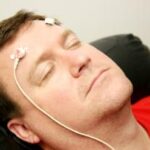 EEG biofeedback and hemoencephalography biofeedback were combined with thermal hand warming biofeedback to treat migraineurs. Continue reading Response to neurofeedback and biofeedback in migraine patients →
EEG biofeedback and hemoencephalography biofeedback were combined with thermal hand warming biofeedback to treat migraineurs. Continue reading Response to neurofeedback and biofeedback in migraine patients →
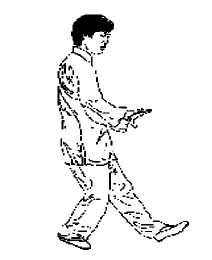 Qigong is an internal martial art in which one learns to sense the Qi (the circulating life energy) moving in their body.
Qigong is an internal martial art in which one learns to sense the Qi (the circulating life energy) moving in their body.
Prof. Ernst reviewed the research on qigong to treat pain. Continue reading Review: Qigong to treat pain →
 Dr. Mark Jensen (photo), who is Professor and Vice Chair, Department of Rehabilitation Medicine at the University of Washington, in Seattle has published a series of studies on this topic.
Dr. Mark Jensen (photo), who is Professor and Vice Chair, Department of Rehabilitation Medicine at the University of Washington, in Seattle has published a series of studies on this topic.
Here’s a summary of his most recent research, and an overview of the past 3 years. Continue reading Self-hypnosis and biofeedback for spinal-cord injury pain →
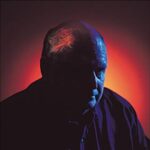 Researchers from the Don Gnocchi Foundation I.R.C.C.S., in Milan, Italy tell us electromyographic biofeedback (EMG-BFB) shows equivocal benefits on gait retraining after stroke.
Researchers from the Don Gnocchi Foundation I.R.C.C.S., in Milan, Italy tell us electromyographic biofeedback (EMG-BFB) shows equivocal benefits on gait retraining after stroke.
In this study they evaluated EMG-BFB applied in a task-oriented approach to increase peak ankle power of the affected leg and gait velocity in patients with hemiparesis. Continue reading Task-oriented biofeedback improves gait in stroke patients →
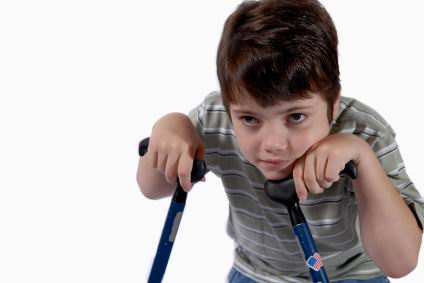 Not in children and adolescents according to this review by researchers at The University of Sydney, in Australia. Continue reading Any benefits of strength training in cerebral palsy? →
Not in children and adolescents according to this review by researchers at The University of Sydney, in Australia. Continue reading Any benefits of strength training in cerebral palsy? →
 Cochrane reviewers report, “no clear evidence exists on the best psychological interventions to help people with cystic fibrosis.” Continue reading Psychological treatment for cystic fibrosis →
Cochrane reviewers report, “no clear evidence exists on the best psychological interventions to help people with cystic fibrosis.” Continue reading Psychological treatment for cystic fibrosis →
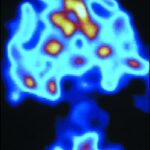 Researchers at Baylor College of Medicine, in Houston, Texas reviewed the evidence on neurofeedback and epilepsy. Continue reading EEG biofeedback in treating epilepsy →
Researchers at Baylor College of Medicine, in Houston, Texas reviewed the evidence on neurofeedback and epilepsy. Continue reading EEG biofeedback in treating epilepsy →
 Â The effect of using surface electromyographic feedback to treat dysphagia in stroke patients was studied by researchers at the University of Amsterdam, in the Netherlands. Continue reading Biofeedback to improve swallowing after stroke →
 The effect of using surface electromyographic feedback to treat dysphagia in stroke patients was studied by researchers at the University of Amsterdam, in the Netherlands. Continue reading Biofeedback to improve swallowing after stroke →
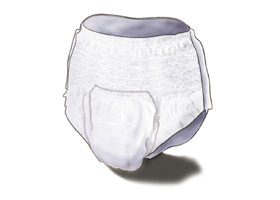  Researchers from the University Hospital, in Tübingen, Germany, reviewed the evidence. Continue reading Biofeedback: Constipation and fecal incontinence →
 Researchers from the University Hospital, in Tübingen, Germany, reviewed the evidence. Continue reading Biofeedback: Constipation and fecal incontinence →
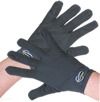 The value of conventional treatment is limited, and so is CAM.
The value of conventional treatment is limited, and so is CAM.
Let’s review. Continue reading CAM for Raynaud’s phenomenon? →
 Â Many tinnitus sufferers believe their condition will not respond to psychological treatments.
 Many tinnitus sufferers believe their condition will not respond to psychological treatments.
In December 2008, researchers from Philipps University of Marburg, in Germany reported a positive study. Continue reading Biofeedback behavioral treatment for tinnitus →
Complementary and Alternative Medicine: Fair, Balanced, and to the Point
 Sleep bruxism (nocturnal tooth grinding) causes hypersensitive teeth, aching jaw muscles, and headaches. There may even be tooth damage and loss.
Sleep bruxism (nocturnal tooth grinding) causes hypersensitive teeth, aching jaw muscles, and headaches. There may even be tooth damage and loss.

 Some are effective, some are promising,
Some are effective, some are promising, 

 It’s a rare condition in which urination occurs during laughing. Researchers from North Shore-Long Island Jewish Health System, in New York
It’s a rare condition in which urination occurs during laughing. Researchers from North Shore-Long Island Jewish Health System, in New York 
 Qigong is an internal martial art in which one learns to sense the Qi (the circulating life energy) moving in their body.
Qigong is an internal martial art in which one learns to sense the Qi (the circulating life energy) moving in their body. Dr. Mark Jensen (photo), who is Professor and Vice Chair, Department of Rehabilitation Medicine at the University of Washington, in Seattle has published a series of studies on this topic.
Dr. Mark Jensen (photo), who is Professor and Vice Chair, Department of Rehabilitation Medicine at the University of Washington, in Seattle has published a series of studies on this topic.
 Cochrane reviewers
Cochrane reviewers  Researchers at Baylor College of Medicine, in Houston, Texas
Researchers at Baylor College of Medicine, in Houston, Texas  Â The effect of using surface electromyographic feedback to treat dysphagia in stroke patients was
 The effect of using surface electromyographic feedback to treat dysphagia in stroke patients was  The value of conventional treatment is limited, and so is CAM.
The value of conventional treatment is limited, and so is CAM. Â Many tinnitus sufferers believe their condition will not respond to psychological treatments.
 Many tinnitus sufferers believe their condition will not respond to psychological treatments.